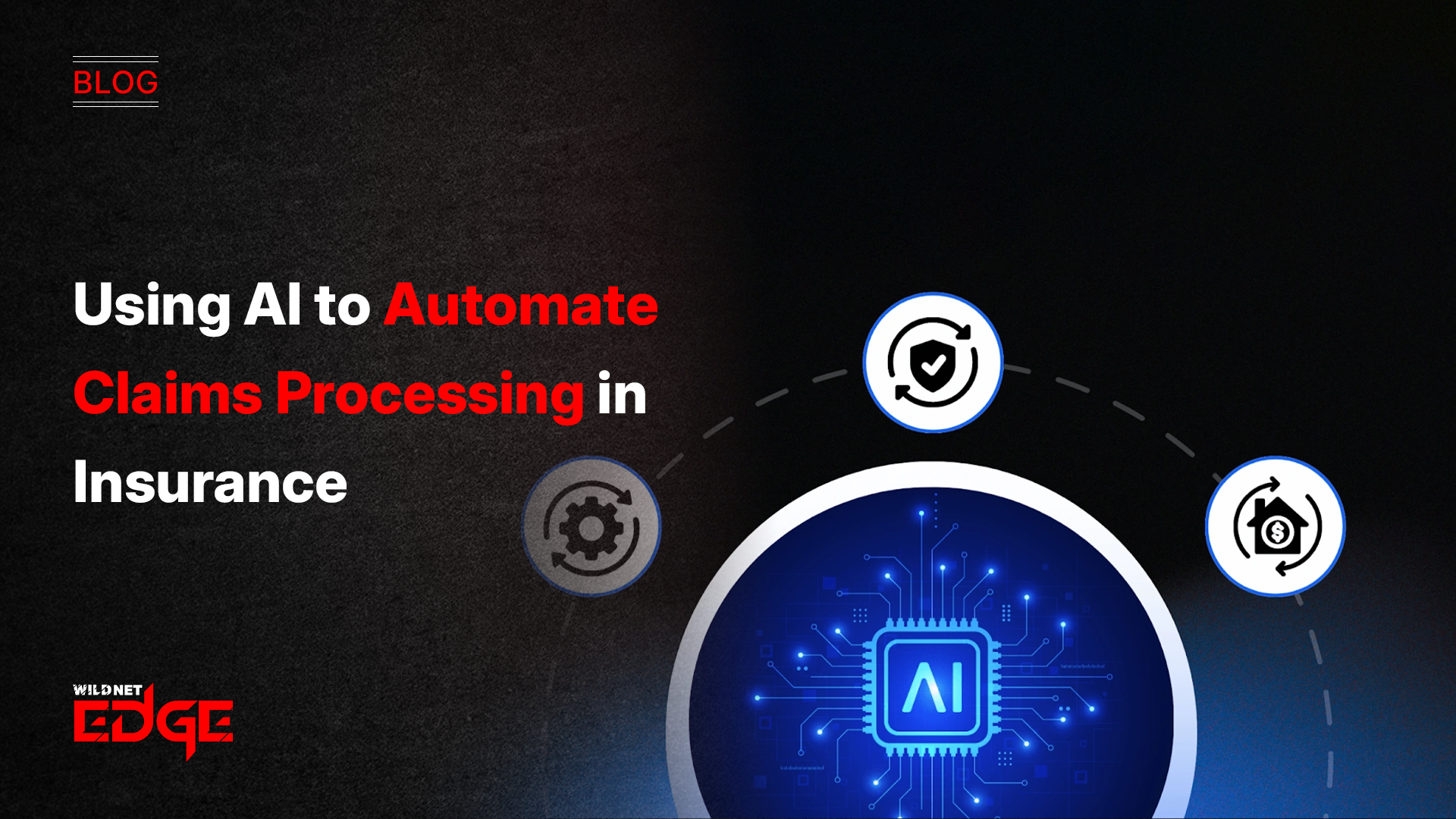TL;DR
This blog outlines building a robust enterprise AI strategy, moving beyond isolated projects to fundamentally reshape your business. It also explores the core benefits, including hyper-personalization of customer experiences, data-driven decision-making that uncovers new opportunities, and unprecedented operational efficiency through intelligent automation.
In 2026, artificial intelligence is not just another piece of technology; it is the central nervous system of the modern enterprise. Companies that successfully integrate AI into their core operations are not just improving; they are fundamentally transforming. However, this level of change doesn’t happen by accident. It requires a deliberate, comprehensive, and forward-thinking AI strategy for business transformation. In this blog, we will discuss the same thing and understand enterprise AI strategy, AI adoption in business, and AI implementation strategy.
What is an AI Strategy for Business Transformation?
An AI strategy for business transformation is a detailed plan that outlines how your company will use artificial intelligence to achieve its most critical business objectives. It’s more than buying a new piece of software; it is a holistic approach that impacts your people, processes, and technology. A successful enterprise AI strategy answers fundamental questions:
- Why are we using AI? (e.g., to increase market share, reduce operational costs, create new revenue streams).
- Where will we apply it? (e.g., in marketing, supply chain, customer service).
- How will we implement it? (e.g., by building in-house, partnering with specialists, buying off-the-shelf).
- How will we measure success? (e.g., ROI, customer satisfaction, market speed).
This strategic plan ensures that your efforts in AI adoption in business are focused, aligned with your goals, and capable of delivering transformative results rather than just isolated improvements.
Core Pillars of a Successful Enterprise AI Strategy
A robust strategy is built on several interconnected pillars. Overlooking any one of these can undermine the entire transformation effort.
1. Business-Goal Alignment
Your AI initiatives must be directly tied to solving your most significant business challenges or seizing your biggest opportunities. An effective AI implementation strategy doesn’t start with technology; it starts with a deep understanding of your business objectives. Every AI project should have a clear “why” that a non-technical executive can understand and support.
2. Data Readiness and Governance
AI is powered by data. Your strategy must include a plan for collecting, cleaning, storing, and governing the data your AI models will need. This involves breaking down data silos and ensuring your data is accurate, accessible, and secure. Without a solid data foundation, even the most advanced AI algorithms will fail. This often requires robust DevOps & cloud engineering to create a scalable data infrastructure.
3. Technology and Infrastructure
You need the right tools and platforms to support your AI ambitions. This includes selecting the right cloud services, MLOps (Machine Learning Operations) platforms, and development tools. Your technology choices should be scalable and flexible, allowing you to start small and grow your capabilities over time.
4. People and Culture
Technology alone is not enough. Your AI strategy for business transformation must include a plan for upskilling your workforce and fostering a data-driven culture. This means training employees on how to work alongside AI systems, encouraging experimentation, and championing a mindset of continuous learning and adaptation. Successful AI adoption in business is as much about people as it is about platforms.
5. Responsible and Ethical AI
Finally, a modern enterprise AI strategy must have a strong ethical framework. This involves ensuring our AI models are fair, transparent, and explainable. We need clear governance to address data privacy, mitigate bias, and ensure our use of AI aligns with our company’s values and regulatory requirements.
The Step-by-Step AI Implementation Strategy
Transforming our business with AI is a journey. Here is a practical, phased approach to guide us.
Phase 1: Discovery and Goal Setting
The first step is to identify the business areas where AI can have the most significant impact. Conduct workshops with leaders from different departments to brainstorm potential use cases. Prioritize these use cases based on their potential ROI and feasibility. For example, we might decide to focus first on automating customer service inquiries or optimizing our supply chain logistics.
Phase 2: The Pilot Project
Don’t try to boil the ocean. Start with a single, well-defined pilot project. The goal of this first project is to demonstrate value quickly and learn valuable lessons about the AI implementation strategy process. This early win will build momentum and secure buy-in from stakeholders across the organization. This is often where partnering with an expert AI development company can provide the specialized skills needed to ensure success.
Phase 3: Building the Foundation
While our pilot project is running, start building the foundational elements of our long-term strategy. This includes establishing our data governance framework, selecting our core technology platforms, and beginning to train our teams. This foundational work is crucial for scaling our efforts beyond the initial pilot.
Phase 4: Scaling and Expansion
Once our pilot project has proven successful, it’s time to scale. This is the stage where we begin to see the compounding benefits of our enterprise AI strategy. Develop a “Center of Excellence” to share best practices and ensure consistency as we expand AI adoption in business across different departments.
Our AI Strategy Services in Action: Case Studies
Case Study 1: AI-Powered Personalization for an eCommerce Giant
- The Challenge: A large online retailer was struggling to provide truly personalized experiences. Their recommendation engine was basic, leading to low engagement and missed sales opportunities.
- Our Solution: We worked with them to develop a comprehensive AI strategy for business transformation focused on hyper-personalization. The AI implementation strategy involved deploying sophisticated machine learning models to analyze user behavior in real-time. We used this to power a dynamic recommendation engine, personalized email marketing, and a customized homepage for every user.
- The Result: The company achieved a 35% increase in conversion rates from personalized recommendations. Their customer lifetime value increased by 20% due to higher engagement and retention.
Case Study 2: Operational Efficiency for a Logistics Company
- The Challenge: A national logistics company was dealing with rising fuel costs and inefficient routing. Their manual planning processes were unable to keep up with the complexity of their network.
- Our Solution: The core of their enterprise AI strategy was operational efficiency. We developed a custom AI-powered platform to optimize their delivery routes in real-time, considering traffic, weather, and delivery windows. The project was a complex piece of custom software development.
- The Result: The company reduced its fuel costs by 15% and improved its on-time delivery rate to 98%. The data-driven insights from the platform also allowed them to optimize their fleet management and reduce maintenance costs.
Our Technology Stack for Enterprise AI
We use a modern, scalable stack to build and deploy robust AI solutions.
- AI & Machine Learning: TensorFlow, PyTorch, Scikit-learn, Keras
- Cloud AI Platforms: Google Cloud AI Platform, Microsoft Azure AI, AWS AI Services
- Data Processing & Analytics: Apache Spark, Databricks, Snowflake
- MLOps: Kubeflow, MLflow, Amazon SageMaker
- Programming Languages: Python, R
Conclusion
In short, a well-defined AI strategy for business transformation is the most critical asset for any company looking to lead in the modern era. It provides the framework to move from isolated experiments to a fully integrated, intelligent enterprise. By focusing on a clear AI implementation strategy that aligns with business goals, prepares our data and people, and embraces ethical principles, we can unlock unprecedented growth. At Wildnet Edge, our AI-first approach means we don’t just provide technology; we partner with you to build the strategic roadmap that will define your success for years to come.
FAQs
Developing the initial strategy and roadmap can take 2-4 months. The first pilot project might take 4-6 months to show initial results. The full transformation is an ongoing journey, but you should start seeing a measurable impact within the first year of a focused AI implementation strategy.
The biggest mistake is treating AI as a series of isolated IT projects rather than a fundamental business transformation. Without executive buy-in and a clear connection to business goals, AI initiatives often fail to scale or deliver meaningful value.
Not necessarily. While you will eventually need in-house expertise, you can begin by partnering with an experienced external team. This allows you to leverage their expertise to get your first projects off the ground and prove the value of AI before making significant hiring commitments.
This is a critical part of a modern AI strategy for business transformation. It involves establishing a clear governance framework, conducting regular audits of your data and models for bias, and prioritizing transparency and explainability in how your AI systems make decisions.
The ROI includes direct cost savings from automation, increased revenue from personalization and improved sales processes, and the long-term strategic value of making faster, more accurate data-driven decisions across the entire organization.
Success should be measured with a combination of technical and business metrics. Technical metrics might include model accuracy, while business metrics are what truly matter: Did we reduce customer churn? Did we increase sales conversion rates? Did we lower operational costs? Each initiative in your AI implementation strategy should have clear, pre-defined KPIs.
The first step is an AI readiness assessment. We’ll work with your leadership team to evaluate your business goals, your current data maturity, and your technical capabilities. This provides the baseline understanding needed to build a realistic and high-impact roadmap for AI adoption in business.

Managing Director (MD) Nitin Agarwal is a veteran in custom software development. He is fascinated by how software can turn ideas into real-world solutions. With extensive experience designing scalable and efficient systems, he focuses on creating software that delivers tangible results. Nitin enjoys exploring emerging technologies, taking on challenging projects, and mentoring teams to bring ideas to life. He believes that good software is not just about code; it’s about understanding problems and creating value for users. For him, great software combines thoughtful design, clever engineering, and a clear understanding of the problems it’s meant to solve.
 sales@wildnetedge.com
sales@wildnetedge.com +1 (212) 901 8616
+1 (212) 901 8616 +1 (437) 225-7733
+1 (437) 225-7733
















 AI Development Services
AI Development Services Industry AI Solutions
Industry AI Solutions AI Consulting & Research
AI Consulting & Research Automation & Intelligence
Automation & Intelligence













